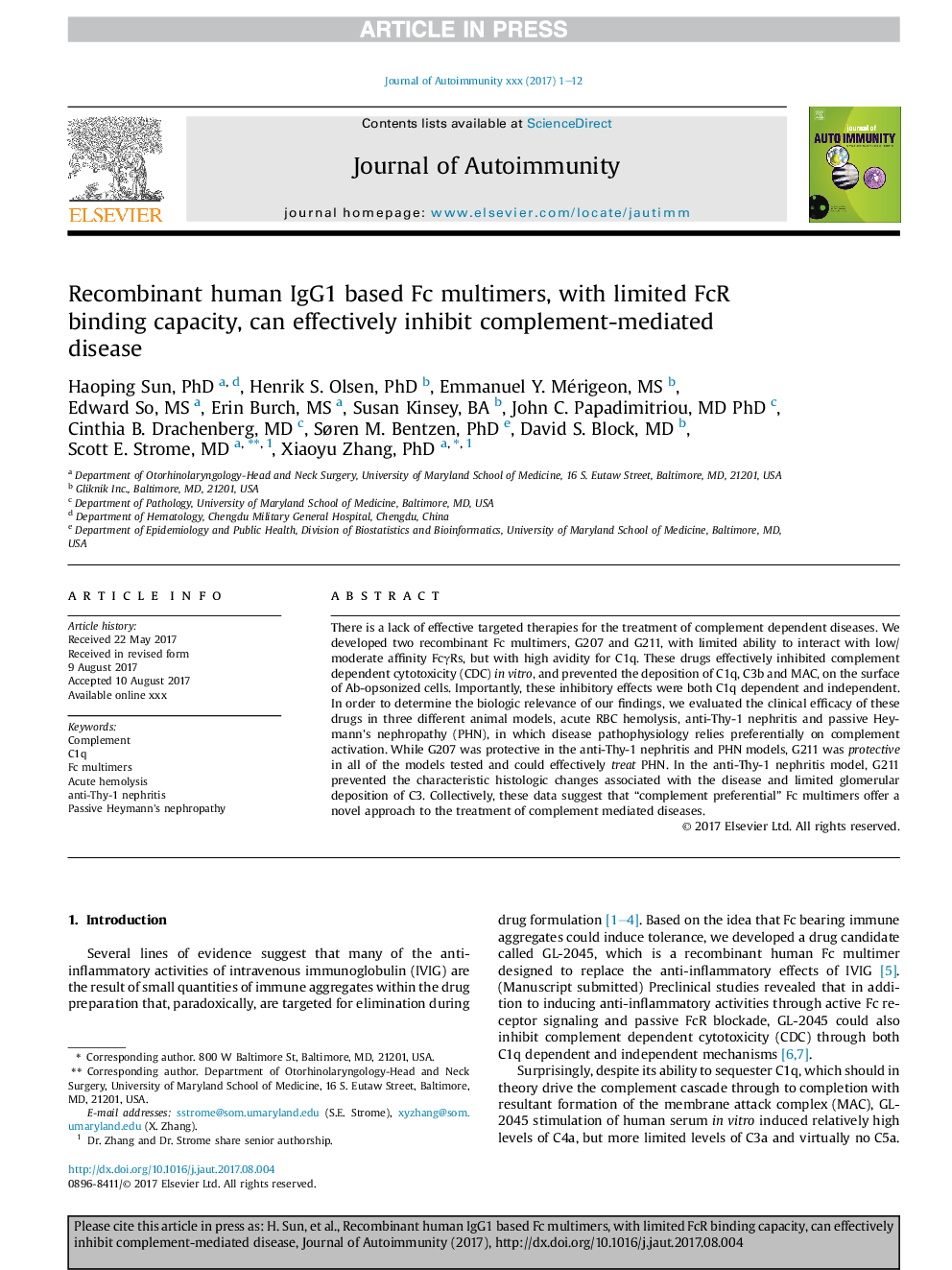| Article ID | Journal | Published Year | Pages | File Type |
|---|---|---|---|---|
| 8739628 | Journal of Autoimmunity | 2017 | 12 Pages |
Abstract
There is a lack of effective targeted therapies for the treatment of complement dependent diseases. We developed two recombinant Fc multimers, G207 and G211, with limited ability to interact with low/moderate affinity FcγRs, but with high avidity for C1q. These drugs effectively inhibited complement dependent cytotoxicity (CDC) in vitro, and prevented the deposition of C1q, C3b and MAC, on the surface of Ab-opsonized cells. Importantly, these inhibitory effects were both C1q dependent and independent. In order to determine the biologic relevance of our findings, we evaluated the clinical efficacy of these drugs in three different animal models, acute RBC hemolysis, anti-Thy-1 nephritis and passive Heymann's nephropathy (PHN), in which disease pathophysiology relies preferentially on complement activation. While G207 was protective in the anti-Thy-1 nephritis and PHN models, G211 was protective in all of the models tested and could effectively treat PHN. In the anti-Thy-1 nephritis model, G211 prevented the characteristic histologic changes associated with the disease and limited glomerular deposition of C3. Collectively, these data suggest that “complement preferential” Fc multimers offer a novel approach to the treatment of complement mediated diseases.
Keywords
Related Topics
Life Sciences
Immunology and Microbiology
Immunology
Authors
Haoping PhD, Henrik S. PhD, Emmanuel Y. MS, Edward MS, Erin MS, Susan BA, John C. MD PhD, Cinthia B. MD, Søren M. PhD, David S. MD, Scott E. MD, Xiaoyu PhD,
